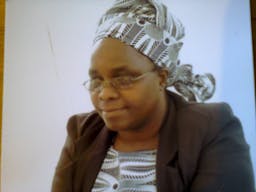TROUBLED BUT NOT DESTROYED;CELEBRATING AFRICAN WOMEN LIVING WITH HIV IN SUB-SAHARAN AFRICA
Jan 21, 2015
Story
The HIV pandemic has had devastating effects to women and girls in Sub-Saharan Africa. Research shows that in the last two decades, nations, communities, families and individuals have been seriously affected. we find some semblance with the theme taken by the AACC 7th annual General meeting in Addis Ababa, Ethiopia in 1997-"troubled but not destroyed."
In the Matthew Henry's Concise Commentary we find the following explanations about Paul's presentation of the experience of disciples in 2 cornthians 4-9, and particularly vv.8-9 that i will stress in this piece. Vv 4:8-12 shows how the apostles were great sufferers, yet they met with wonderful support. Believers may be forsaken of their friends, as well as persecuted by enemies; but their God will never leave them nor forsake them. There may be fears within, as well as fighting's without; yet we are not destroyed. The apostle speaks of their sufferings as a counterpart of the sufferings of Christ, that people might see the power of Christ's resurrection, and of grace in and from the living Jesus. In comparison with them, other Christians were, even at that time, in prosperous circumstances.
Many people who have been following the updates by many concerned people who have taken the initiative to be involved in addressing issues of HIV will agree with me that on the one hand, there are a number of women (GLOBAL HIV statistics by UN and W.H.O annual reports)who were not able to pull through due to unfavorable circumstances characterized by exploitation, stigmatization, and all forms of exclusion and dehumanization. On the other hand, I stand today to honour and celebrate African women in several communities in sub-Saharan Africa who have demonstrated remarkable resilience in face of devastating effects of HIV and AIDS.
Women in institutions of higher learning, in government offices, in NGOs, in church and Para-church organizations, women in communities, women in families-------I honour you. Thank you for bearing the burden, thank you for the motivation to keep going even when the conditions were unfavorable. It is out of these that we now have the hope of the institution of marriage in the face of HIV/AIDS. People have been able to propose, engage, wed and live together happily, train at various levels beyond the infection. And not just that, we have children born with HIV that have been taken care of because you were willing to give birth. And as if that is not enough, you were and still are to bring forth HIV negative children even with your positive status.
Re-looking at issues of gender and HIV can only bring the meaning closer if we look at the case of Job's long suffering and his resilience in the old Testament(the book of Job). Amidst the challenges and negative responses from his friends and wife,Job kept trusting God. As African women, you have equally forged on and what is befitting is for all of us to stand in solidarity and look for practical holistic and contextual ways to promote the good you have taught us-"resilience" in the face of HIV.
Practical & contextual Recommendations for african families, churches, communities and states:
African communities, leaderships at all levels, nations
Paradigm shift in African fatherhood in the face of HIV to foster responsibility, care and support of African womenReconstruction of African family leadership in the light of Ubuntu or traditional extended family systems to motivate fathers to take responsibilities seriously. This is aimed at: Stopping incest and rape in the families by male members among them fathers, uncles, brothers, and extended family males.
Stand in solidarity with African sisters. This is aimed at creating safety nets for sisters who face stigmatization-rejection and discrimination and other dehumanizing circumstances. This will help African women in the continent to form support groups, connect with people who will work with them to address justice issues through formal legal structures, access the clinical, psycho-social, spiritual, economical and educational facilities services when they need them. this will also help regain the lost self esteem.
Creative African approach that will engage poverty while looking at the dynamics of economic systems.this will help boost the economic bases of individual African women on the continent, families, communities and nations. Core will be protection of women and girl children from humble backgrounds by people with money power. The ultimate result will be holistic independence of African women in sub-Saharan Africa and decrease of suffering and infections and re-infections.
Reconstruct practical theology through pastoral care to help African communities to reconsider and adopt positive practical traditional ways that could be integrated into the diaconate ministries of churches in Africa.
As women, i know,together, we can move on stronger.




